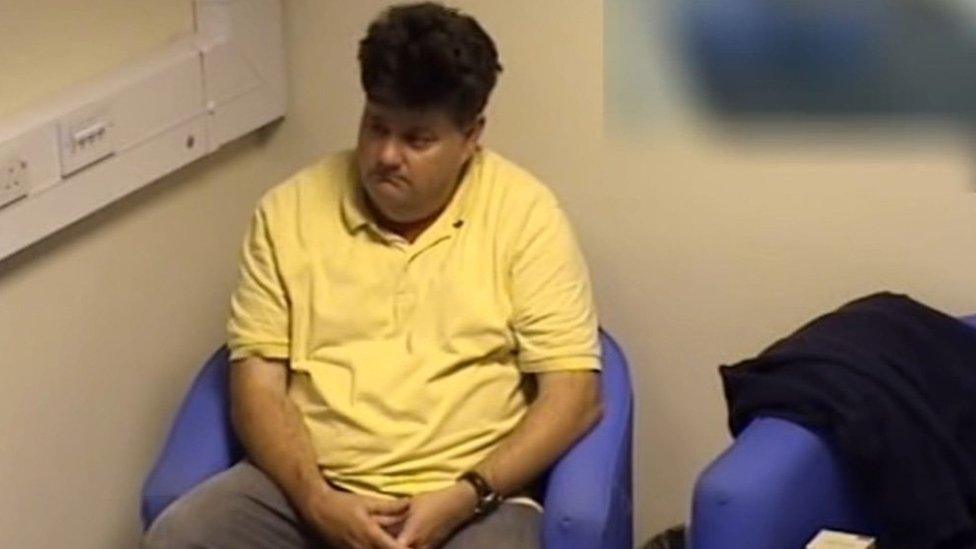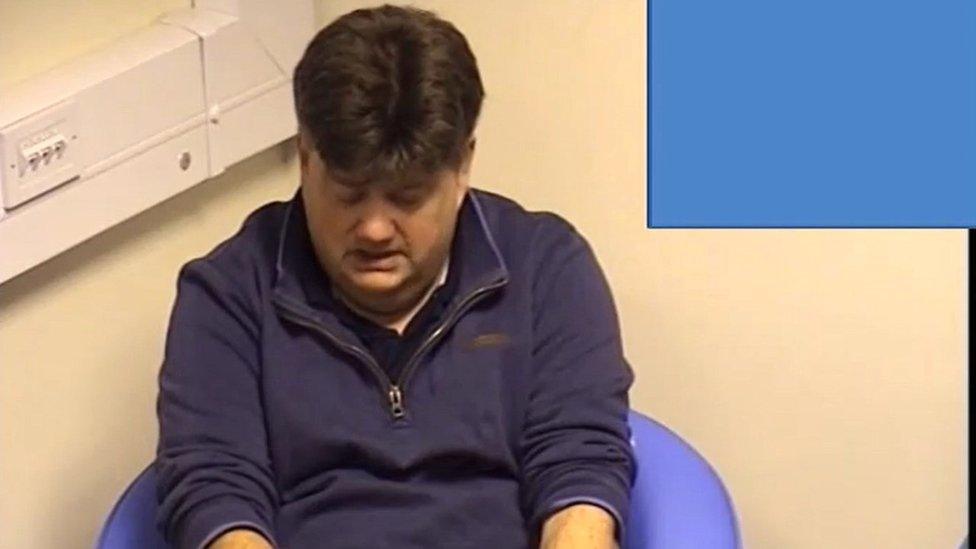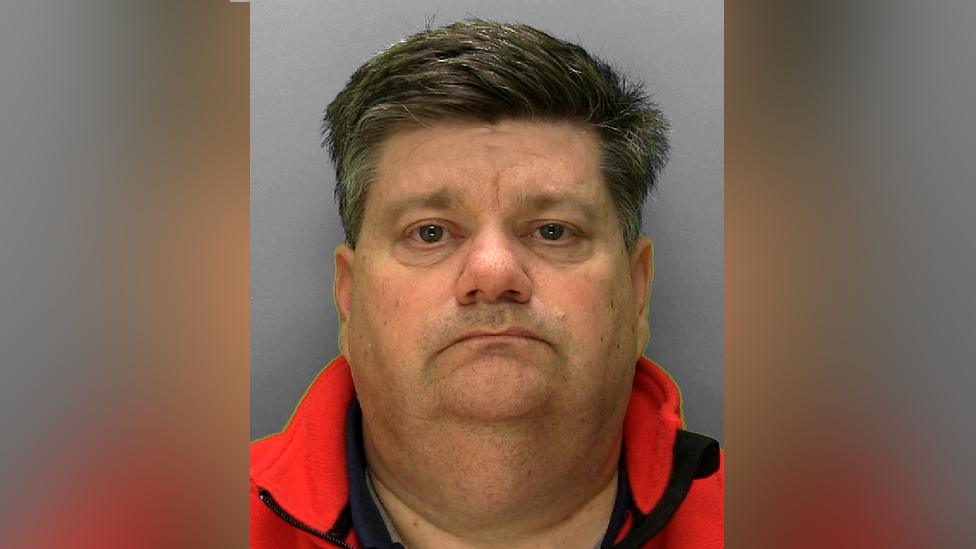VIP abuse inquiry: Police 'should have realised accuser Carl Beech was lying'
- Published

Carl Beech's fake claims of abuse by senior figures led to a £2.5m investigation and suspects' homes being searched
Police officers involved in the probe into an alleged VIP paedophile ring should themselves be investigated, a former High Court judge has said.
Sir Richard Henriques said, external police wrongly claimed Carl Beech's story was consistent when applying for warrants to search suspects' homes.
He added: "A criminal investigation should surely follow."
Last week, Beech was jailed for 18 years for inventing false allegations of murder and child sexual abuse.
Beech's conviction followed Sir Richard's damning 2016 review of the Metropolitan Police's investigation of his claims.
Writing in the Daily Mail, Sir Richard continued his criticism, saying the version of Beech's claims made to Wiltshire Police in 2012 was "fundamentally inconsistent" with what he told the Met Police in 2014.
Wiltshire Police were never informed of the three murder claims and the identities of the alleged rapists were inconsistent, as were the locations, the other people he claimed were present and the alleged accompanying acts of violence, Sir Richard said.
But, he continued, when officers applied for warrants to search the homes of Lady Brittan, Lord Bramall and Harvey Proctor, they told a district judge that Beech had been consistent in his allegations.
Sir Richard said: "The fact remains, however, that Beech had not remained consistent, the Metropolitan Police informed the district judge that Beech had remained consistent and 'he is felt to be a credible witness who is telling the truth'."
Sir Richard said he therefore believed a criminal investigation should follow - something that has received support from former director of public prosecutions Lord Ken Macdonald.
'Very serious misconduct'
Speaking to BBC Radio 4, Lord Macdonald said: "[Sir Richard] concluded that the officers who applied for the search warrants against the various people who were named by Beech misled the court.
"And he's right in saying that is very serious misconduct and could easily amount to a criminal offence."
Operation Midland, which was based on Beech's lies, took two years, cost the Met £2.5m and ended with no arrests.
Last week, the Independent Office for Police Conduct (IOPC) cleared the officers of any misconduct over search warrants and said there was no evidence they had deliberately misled the district judge who approved them.
The IOPC maintains it conducted a "careful assessment" but identified "no suspicion of criminality".
But Lord Bramall, a former head of the armed forces and D-Day veteran, said in a statement that he found this conclusion "completely ridiculous" in the light of Sir Richard's comments.
A Home Office spokesman said: "It is right that allegations relating to the seeking of warrants as part of Operation Midland were referred to the IOPC.
"The public need to have confidence that the police are exercising their powers in a correct and proportionate way."
Who is Carl Beech?
A 51-year-old former paediatric nurse, Beech wrongly accused a string of establishment figures of being part of a paedophile ring in the 1970s and 1980s. He falsely claimed some of them had been involved in murder and child abuse.
Beech's claims were widely publicised by the media, which used the name "Nick" to protect his identity. They led to a police investigation, Operation Midland, that involved searching the homes of prominent people.
A separate investigation by Northumbria Police eventually revealed Beech to be a fantasist and a paedophile who had collected hundreds of child sexual abuse images.
What did Sir Richard's 2016 report say?
When Operation Midland ended in 2016, the Met Police brought in Sir Richard to review the investigation.
His report on Operation Midland and seven other Met Police investigations into allegations of past sexual abuse was published, with some redactions, in October 2016.
It identified 43 failings in the investigation into Beech's claims and said the decision to abandon it should have been taken much earlier.
Sir Richard said police believed Beech for too long, should not have announced his claims were "credible and true", and applied for search warrants with flawed information.
What is a search warrant?
To search people's homes or other premises for evidence in a criminal case, police usually need to apply to a magistrates' court for a search warrant.
Magistrates need to be convinced that police have reasonable grounds to suspect an offence has been committed and that the location being searched might contain evidence that would be relevant to a trial.
But Sir Richard says that every application for a search warrant should disclose all relevant information to the court's decision - including any information that might undermine the case.
He says that the inconsistencies in Beech's account should have been brought to the attention of the district judge but were not.
What are the police saying?
The Met Police referred five officers who were named in Sir Richard's report to the IOPC and an investigation was launched into three of them.
A spokesman said: "None of the five officers involved in the original referral or the three officers subject to investigation were found to have cases to answer in relation to any of the allegations."
None of those involved is still working as a Metropolitan Police officer.
After Beech's conviction, the Met Police said they had been working in "good faith" but "did not get everything right" and said they would strive to learn lessons about "complex and challenging" sexual offences cases.
- Published26 July 2019

- Published26 July 2019
